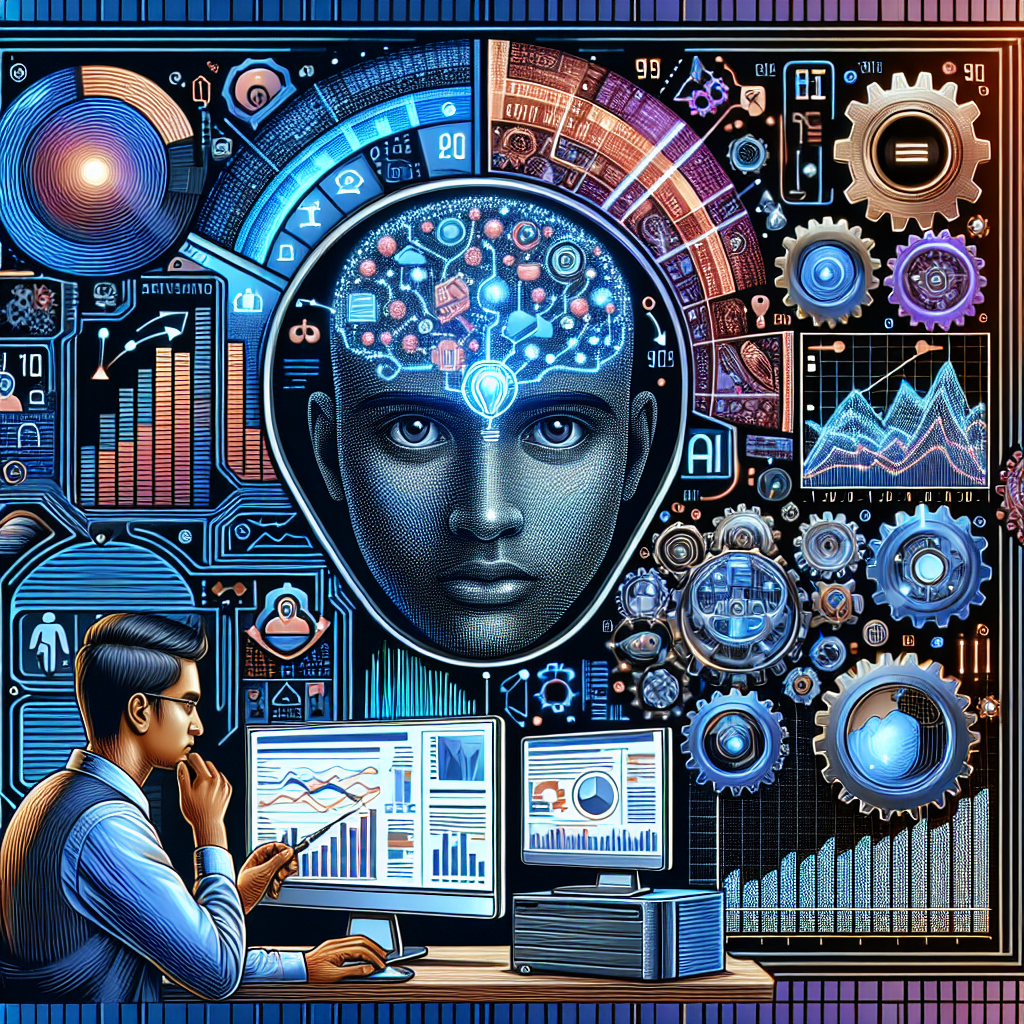Artificial Intelligence (AI) has revolutionized many industries, and marketing is no exception. AI tools and technologies have transformed the way marketers analyze data, identify trends, and make strategic decisions. In this article, we will explore the benefits of AI in marketing analytics and how it can help businesses gain a competitive edge in today’s digital landscape.
1. Improved Data Analysis
One of the biggest benefits of AI in marketing analytics is its ability to process and analyze vast amounts of data quickly and accurately. AI algorithms can sift through massive datasets to identify patterns, trends, and insights that would be nearly impossible for humans to uncover on their own.
By leveraging AI-powered analytics tools, marketers can gain a deeper understanding of their target audience, their behavior, preferences, and purchasing habits. This valuable data can help businesses tailor their marketing strategies to better meet the needs of their customers and drive more targeted, personalized campaigns.
2. Enhanced Customer Segmentation
AI can also help marketers segment their customer base more effectively. By analyzing customer data and behavior, AI algorithms can group customers into different segments based on their demographics, interests, and buying behavior. This segmentation allows marketers to create more personalized and targeted marketing campaigns that resonate with specific customer groups.
By delivering the right message to the right audience at the right time, businesses can improve customer engagement, increase conversion rates, and ultimately drive more revenue.
3. Predictive Analytics
Another benefit of AI in marketing analytics is its ability to predict future outcomes and trends. AI algorithms can analyze historical data to forecast customer behavior, identify potential opportunities, and predict market trends. This predictive analytics can help businesses make informed decisions and optimize their marketing strategies for better results.
For example, AI-powered predictive analytics can help marketers identify which customers are most likely to churn, which products are likely to sell well, and which marketing channels are most effective for reaching their target audience. By leveraging these insights, businesses can proactively address potential issues, seize opportunities, and stay ahead of the competition.
4. Real-time Insights
AI in marketing analytics also enables real-time data analysis and insights. By constantly monitoring and analyzing data streams, AI algorithms can provide marketers with up-to-the-minute insights into customer behavior, campaign performance, and market trends. This real-time data allows marketers to make quick decisions, adjust their strategies on the fly, and capitalize on emerging opportunities.
Real-time insights can also help marketers track the effectiveness of their campaigns in real-time, identify any issues or bottlenecks, and make adjustments as needed to maximize ROI.
5. Automation and Efficiency
AI-powered marketing analytics tools can automate repetitive tasks, streamline processes, and improve overall efficiency. By automating data collection, analysis, and reporting, marketers can save time and resources, allowing them to focus on more strategic tasks like campaign planning and optimization.
AI can also help marketers optimize their advertising spend by automatically adjusting bids, targeting, and ad placements based on real-time data and performance metrics. This automation can help businesses maximize their ROI and achieve better results with minimal manual intervention.
FAQs:
Q: How can AI help businesses improve their marketing strategies?
A: AI can help businesses improve their marketing strategies by providing valuable insights into customer behavior, preferences, and trends. By analyzing vast amounts of data quickly and accurately, AI algorithms can help businesses identify opportunities, optimize their campaigns, and deliver more personalized and targeted marketing messages to their audience.
Q: What are some common AI-powered marketing analytics tools?
A: Some common AI-powered marketing analytics tools include customer segmentation tools, predictive analytics platforms, real-time data analysis tools, and automation software. These tools leverage AI algorithms to process data, generate insights, and optimize marketing strategies for better results.
Q: How can businesses get started with AI in marketing analytics?
A: Businesses can get started with AI in marketing analytics by investing in AI-powered tools and technologies, partnering with AI vendors, and training their teams on how to use AI effectively. It’s important for businesses to have a clear strategy and objectives for implementing AI in their marketing efforts to ensure success.
In conclusion, AI in marketing analytics offers a wide range of benefits for businesses looking to gain a competitive edge in today’s digital landscape. From improved data analysis and customer segmentation to predictive analytics and real-time insights, AI can help businesses optimize their marketing strategies, drive more targeted campaigns, and achieve better results. By leveraging AI-powered tools and technologies, businesses can stay ahead of the competition, engage customers more effectively, and drive growth in today’s fast-paced, data-driven world.

